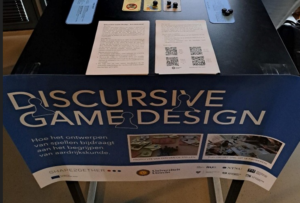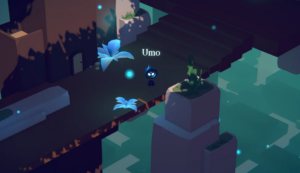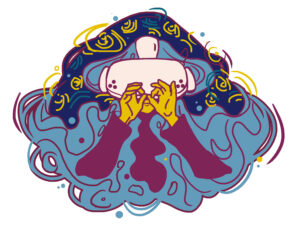
Engaging with the realities and complications of the climate crisis is a sensitive matter that is far from straightforward. Opinions on the topic diverge in more ways than can be realistically accounted for, ranging from a steadfast desire to ignore the reality of the situation, to debates on what are the best possible moves going forward. However, research (such as that supporting the ongoing Open Minds project) suggests that play is one way in which such difficult topics can be more effectively tackled within a classroom setting. The Carbon Pearl game, an Eco-Game constructed following the principles of Discursive Game Design (DGD), offers one tool that can be used to support educators in exactly those sorts of difficult conversations. Carbon Pearl was conceptualized by Timo Fluitsma with support from Elizaveta Bagaeva and supervised by René Glas and Jasper van Vught as a part of the Spationomy 2.0 Erasmus+ project.
The game offers students and educators a starting point to explore the ramifications of climate change, while also offering a foundation for adaptation and modification to enable those who interact with the game to adjust it to suit their relevant interests. Through offering a student guide, a teacher guide, and a rules quick guide Carbon Pearl enables educators and students to engage with the game in classroom settings, and as a consequence of the games DGD philosophy, it remains adaptable.

Discursive Game Design (DGD), for those unfamiliar with the term, is described as being a “critical practice-based game research and teaching framework” in a paper published in 2021 by René Glas, Jasper van Vught, and Stefan Werning.[HERE] In this same article they also state that DGD “tailors game cocreation to higher education scenarios, but also has a distinctly procedural focus”.[HERE] DGD functions as a way of constructing a game that remains in flux, remains adaptable and is therefore able to grow alongside the groups that engage with it, as well as be altered to reflect a variety of dilemmas. This adaptability makes it uniquely suited for in-classroom applications, as is the aim for the Carbon Pearl project, and allows for debating and discussions in a way other frameworks may not.
Carbon Pearl is also available on the Steam Workshop to play for those who own Table Top Simulator under the name Spationomy 3.0.
In speaking with one of the people behind the game, Timo Fluitsma, one thing that was made very clear is the importance of both understanding and recognizing the role of Discursive Game Design in the construction as well as functionality of Carbon Pearl. As a game, Carbon Pearl is flawed, it does not account for everything and leaves room for improvement. Fluitsma noted that it may possibly be more complex than it ideally might have been had it been made to appeal to a mass market, or intended for large scale production. But that is the point, Carbon Pearl was intended to be flawed. The game was intentionally left flawed and incomplete to encourage others to engage with and modify the game in ways that would best reflect their individual goals and needs, something that has allowed the game to remain changeable and relevant, and will continue to allow it to be reflective of reality in ways a more complete or polished product would not.
The document written to explain the project, as well as showcase the design process [HERE] discusses the decision to build the game through modifying and building off of existing games and game structures. Making use of various design aspects from games such as Catan, Magic the Gathering, and Plague Inc. as a way simplifying the game-design process for both the sake of time management, and ease of entry.
The Carbon Pearl game was designed to afford people who want to play the game and use it in classroom settings the ability to simply pick up the game and go from there, either making adjustments as needed or simply taking the existing framework and moving ahead. It does not require the people wanting to play the game to have an understanding of game design, while also still enabling them to modify and adjust the game parameters in such a way that it becomes more topically applicable to whatever issues they are wanting to explore.




